India & World UpdatesAnalyticsBreaking News
Minding our minds during the COVID-19 pandemic, writes Dr. Himabrata Das
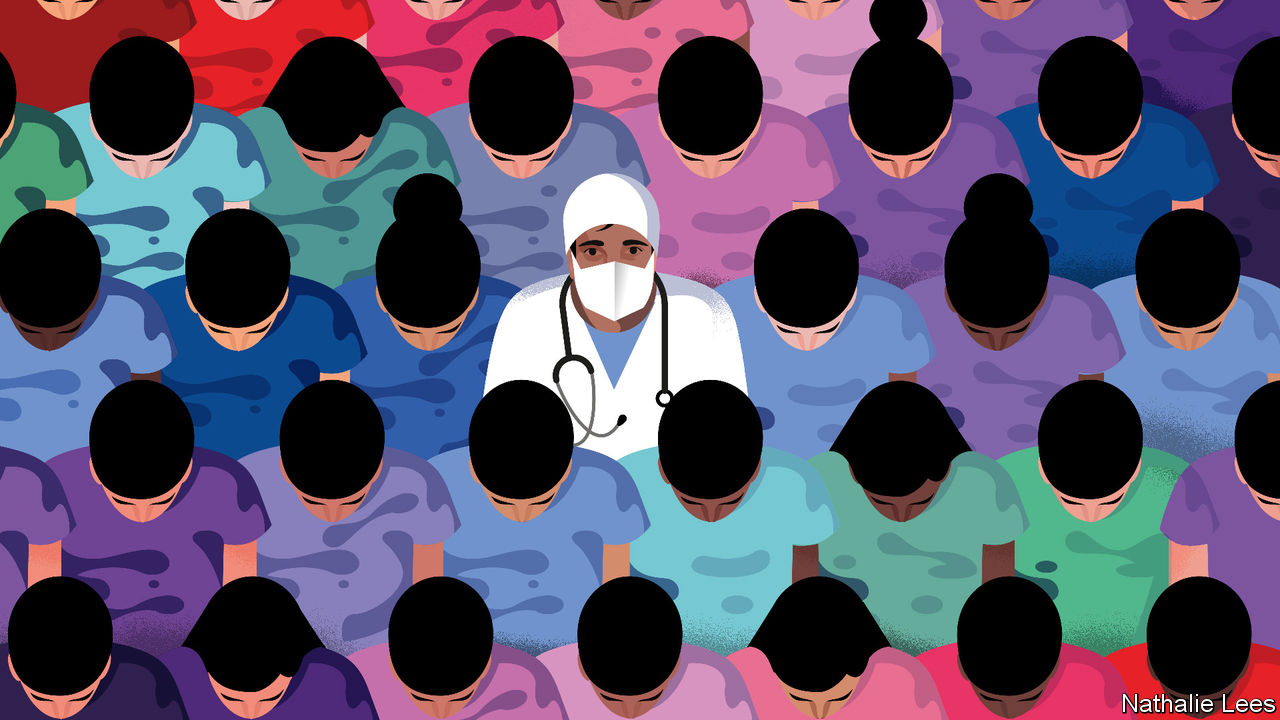

=Dr. Himabrata Das**=
April 8: As the coronavirus (COVID-19) pandemic sweeps across the world, it is causing widespread concern, fear and stress, all of which are natural and normal reactions to the changing and uncertain situation that everyone finds themselves in. It makes us anxious, panicky and can even possibly make us think, say or do things that we might not consider appropriate under normal circumstances. The issue facing each and every one of us is how we manage and react to the stressful situation unfolding so rapidly in our lives and communities. It is in this backdrop that it becomes very essential to have a know-how of minding our minds during the COVID-19 pandemic.
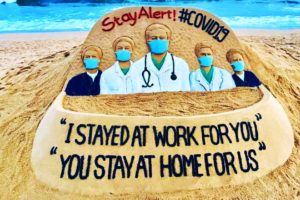 One of the major psychiatric concerns posed by the COVID-19 pandemic is the impact it has had globally on patients suffering from Obsessive Compulsive Disorder(OCD). 2-3% of the general population suffer from this condition which is prevalent among children as well(boys being represented more than girls). The current guidelines mention washing hands for 20 seconds, taking a shower, cleaning contaminated surfaces with a sanitiser that contains at least 60% alcohol, social distancing and covering mouth with elbow during coughing and sneezing. These guidelines act as reinforcers for patients with OCD leading to the misconception that “having OCD is OK“. This has to be dispelled. Hence, this post will help to dispel some of the myths.
One of the major psychiatric concerns posed by the COVID-19 pandemic is the impact it has had globally on patients suffering from Obsessive Compulsive Disorder(OCD). 2-3% of the general population suffer from this condition which is prevalent among children as well(boys being represented more than girls). The current guidelines mention washing hands for 20 seconds, taking a shower, cleaning contaminated surfaces with a sanitiser that contains at least 60% alcohol, social distancing and covering mouth with elbow during coughing and sneezing. These guidelines act as reinforcers for patients with OCD leading to the misconception that “having OCD is OK“. This has to be dispelled. Hence, this post will help to dispel some of the myths.
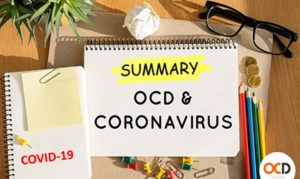 1. Covid-19 may increase OCD because of the information overload,fear of uncertainty and specific cognitive distortions that lead to fear mongering.
1. Covid-19 may increase OCD because of the information overload,fear of uncertainty and specific cognitive distortions that lead to fear mongering.
2. Health anxiety lies along a spectrum ranging from NORMAL to Pathological (as in OCD,Generalised Anxiety Disorder,Panic Disorder,Phobias and Hypochondriasis)
3. The following subset of individuals are predisposed to develop OCD
•Pre-existing subclinical OCD
•Anxiety disorders
•Anxiety sensitivity
•Disgust sensitivity
•Positive family history
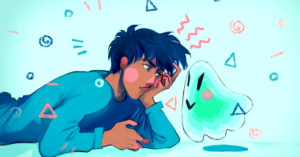 4. Impact of COVID-19 on OCD may manifest as New onset as well as relapse of OCD triggered by
4. Impact of COVID-19 on OCD may manifest as New onset as well as relapse of OCD triggered by
•Anxiety,stress and depression
•Discontinuation of medicines
•Discontinuation of Behaviour Therapy
•Fear of infection and COVID-19 guidelines
5. Typical symptoms of OCD in the current context include
•Fear of getting infected
•Fear of spreading infection
•Fear of quarantine and its consequences
•Fear about self and close ones
•Fear about no access to treatment
•Fear about being careless and negligent
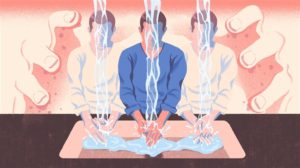 6. OCD is different from normal health anxiety and is characterized by
6. OCD is different from normal health anxiety and is characterized by
•Excessive cleaning,washing,bathing
•Compulsive checking of TV and Internet
•Seeking reassurance repeatedly
•Visiting clinics repeatedly,asking for tests
•Increased perfectionism
7. Hallmarks of OCD in the current scenario
•Morbid preoccupation with autonomic arousal
•Time consuming(more than 20 seconds of handwashing) and often until they are “satisfied” and “anxiety reduces”
•Distressing and impairing
•Exaggerated threat perception
•Increased avoidance and safety behaviours
•Newer methods of handwashing
•Trying to be “perfectionist”
 8. Treatment options for OCD
8. Treatment options for OCD
•Drugs-SSRIs,Clomipramine
•Cognitive Behaviour Therapy
•Drugs+CBT
•Surgery(in rare cases)
9. Management principles in the current context
•Discourage safety behaviours and compulsions
•Avoid family accomodation
•Encourage essential safety measures
•Do not validate exaggerated fears
•Eliminate risks
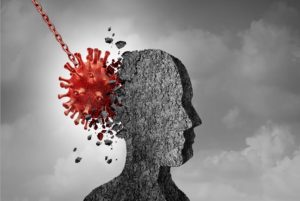 10. How not to fall into the OCD trap?
10. How not to fall into the OCD trap?
•Only 5-10 minutes a day on gathering information
•Only do as much as the guidelines mention,not more
•No need to wear mask all the time
•Avoid hoarding medicines(such as hydroxychloroquine and antibiotics)
Knowledge is power; the more you know about a certain issue, the less fearful you may feel. Just as you can recognise your own mental health problems, be sensitive to such problems in your near and dear ones. Remember, good mental status in the difficult times may win you the battle more easily!
 **Dr. Himabrata Das, Registrar, Department of Psychiatry, Tezpur Medical College & Hospital (TMCH).
**Dr. Himabrata Das, Registrar, Department of Psychiatry, Tezpur Medical College & Hospital (TMCH).
(Based on a webinar by Dr Y.C.Janardhan Reddy, Head,OCD Clinic, Department of Psychiatry, NIMHANS, Bengaluru)





